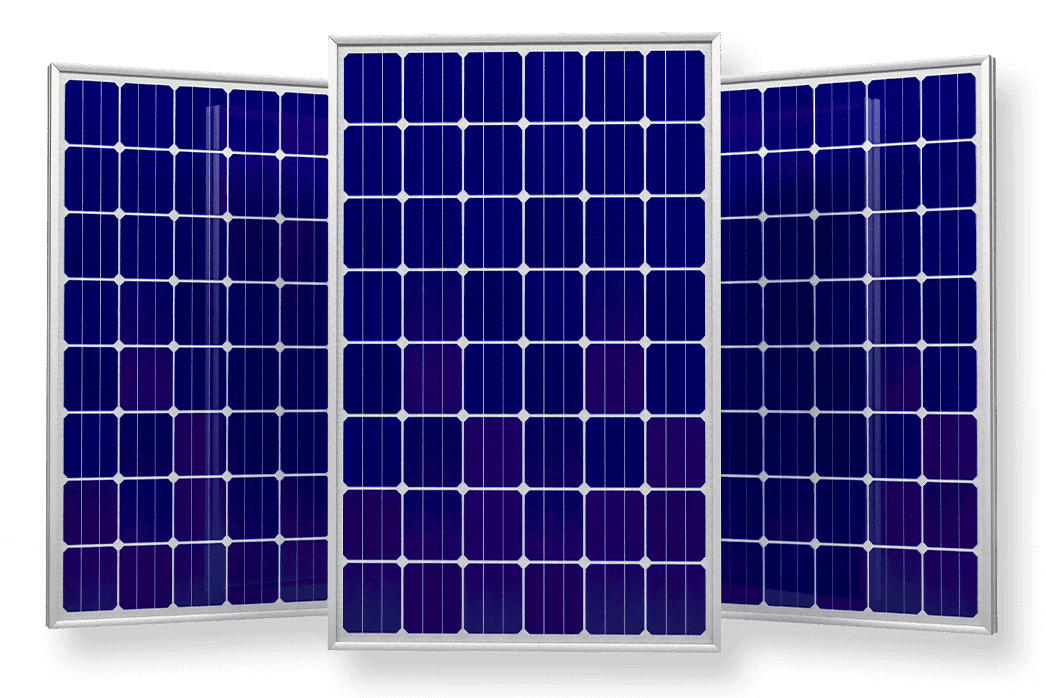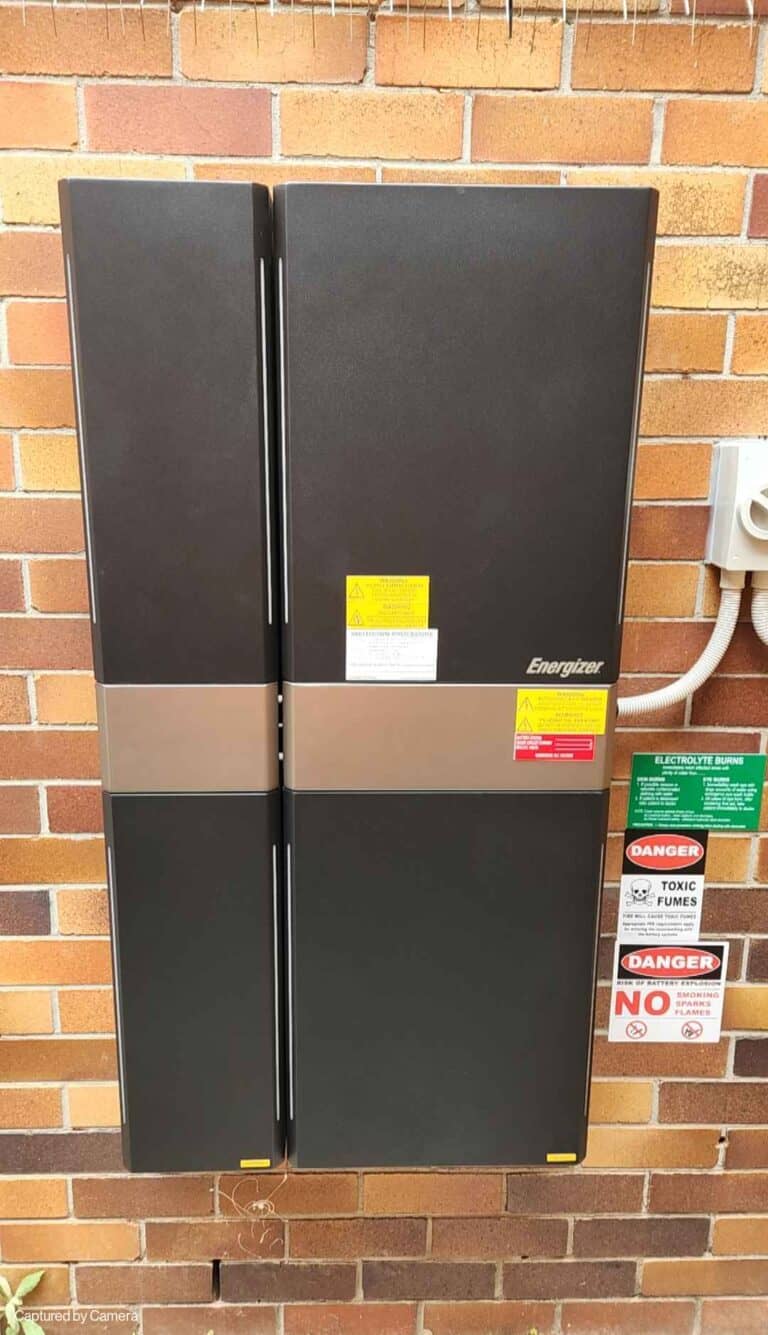What Size Solar Battery Do I Need
When evaluating the size of your solar battery, analyze your daily energy consumption and peak electricity demands for efficient energy storage and achieving independence from the grid. Understanding these patterns is vital for efficiency. Make sure that your battery aligns with your usage to manage power effectively. For more insights into factors influencing battery size selection, peak power generation estimation, and battery capacity calculations, learn how to make informed decisions for your solar energy setup.
Key Takeaways
- Estimate battery size based on daily electricity consumption patterns.
- Consider peak demand to determine appropriate battery capacity.
- Align battery size with solar panel system for optimal efficiency.
- Factor in battery lifespan and charging techniques for longevity.
- Consult professionals for accurate sizing guidance.
Factors Influencing Battery Size Selection
To determine the appropriate size of your solar battery, you must carefully consider several key factors that will directly impact your selection process. Battery technology advancements play an important role in the efficiency and effectiveness of modern solar batteries. Keeping up with future energy storage trends is essential to make sure that your investment remains relevant and beneficial in the long run. Advancements in battery technology have led to increased energy density, longer lifespan, and faster charging capabilities, which are all essential considerations when choosing the right solar battery for your needs.
Looking towards future energy storage trends can also guide your decision-making process. As the industry evolves, new technologies and innovations may influence the performance and cost-effectiveness of solar batteries. Staying informed about emerging trends can help you make a more informed choice that aligns with your goals for reducing grid reliance or having a reliable backup power source.
Daily Power Generation Estimation
Estimating daily power generation from a solar system relies heavily on the number of panels and the size of the inverter. To help you better understand this process, consider the following key points:
- Solar Panel Capacity: The capacity of your solar panels, measured in watts, directly impacts the amount of energy they can generate each day.
- Inverter Efficiency: An important component, the inverter converts the direct current (DC) generated by the panels into usable alternating current (AC) for your home.
- Peak Demand Analysis: By analyzing when you use the most electricity during the day, you can align your solar system's production to meet these peak demands effectively.
- Energy Consumption Patterns: Understanding your household's energy consumption patterns, such as the amount used during daylight versus nighttime, is crucial in sizing your solar battery appropriately.
Understanding Energy Consumption Patterns
Understanding energy consumption patterns is crucial for accurately determining the appropriate size of a solar battery tailored to your specific needs and goals. Energy usage analysis plays a vital role in this process. By examining when and how you use electricity throughout the day, you can identify peak consumption periods and tailor your solar battery size accordingly. To help you visualize this concept, consider the following table showcasing hypothetical energy consumption patterns:
| Time of Day | Energy Consumption (kWh) |
|---|---|
| Morning | 2 |
| Afternoon | 4 |
| Evening | 6 |
Moreover, employing storage optimization techniques is key to maximizing the effectiveness of your solar battery. By analyzing your energy consumption habits and understanding the ratio of daytime to nighttime energy usage, you can determine the ideal size of the solar battery required to cover your nighttime energy needs efficiently. This strategic approach ensures that your solar system operates at its highest level of performance, ultimately leading to cost savings and reduced grid reliance.
Goal of Reducing Grid Reliance
Reducing grid reliance requires careful consideration of the appropriate solar battery size to accommodate nighttime energy storage needs efficiently. To achieve this goal effectively, you should focus on the following:
- Nighttime Usage Optimization: Opt for a solar battery that can store a minimum of 11kWh to cover your nighttime energy consumption adequately. Understanding when and how you consume energy is important for sizing the battery correctly.
- Peak Demand Management: A well-sized solar battery can help manage peak energy demands efficiently, reducing the need to draw power from the grid during high-usage periods.
- Energy Independence: By investing in a sizable battery that aligns with your energy consumption patterns, you can decrease your reliance on grid electricity, promoting self-sufficiency.
- Grid Backup Strategies: Pairing solar panels with a battery enables you to rely less on the grid during low solar production periods, enhancing your grid independence and ensuring a stable power supply.
Compatibility With Solar Panel System
Guarantee that your solar battery aligns with the power output of your panel system to maximize efficiency. Matching the battery size to your panels can optimize energy storage and usage, enhancing overall performance.
Consider compatibility with the inverter and other components for a well-aligned system.
Panel System Compatibility
To optimize energy storage efficiency, guarantee that your solar battery aligns seamlessly with your solar panel system's power output and charging capacity. Here are some key considerations to ensure panel system compatibility:
- Check Solar Battery Compatibility: Make sure the solar battery you choose is compatible with your specific solar panel system.
- Evaluate Power Output: Consider the power output of your solar panels to match it with the storage capacity of the battery.
- Assess Charging Capacity: Verify if the battery can handle the charging capacity of your solar panels effectively.
- Consult with Professionals: Seek advice from solar energy professionals to determine the best battery size for your system.
Battery Size Considerations
Considering the compatibility with your solar panel system, determining the appropriate size of the solar battery is essential for maximizing energy storage efficiency and utilization. It's important to make sure that the battery size aligns with the power output of your solar panels and your energy consumption patterns.
By selecting a battery size that complements your system, you can optimize energy storage and utilization. Additionally, advancements in battery technology and future trends suggest that choosing a solar battery that fits your system's specifications can enhance overall efficiency and performance.
Hence, when deciding on the size of your solar battery, it's critical to take into account these factors to maximize energy generation and storage capabilities effectively.
Energy Storage Capacity
For peak effectiveness in energy storage and utilization within your solar panel system, the compatibility of the solar battery's energy storage capacity with the power output is crucial. To ensure seamless functionality and top performance, consider the following:
- Battery technology advancements: Stay informed about the latest developments in battery technology to choose the most efficient and suitable option for your solar panel system.
- Future energy storage trends: Keep an eye on emerging trends in energy storage to anticipate future needs and potential upgrades for your system.
- Matching battery capacity with energy generation: Align the storage capacity of your solar battery with the daily energy generation of your solar panels to maximize self-consumption and reduce reliance on the grid.
- Efficiency, discharge depth, and charging capacity: Take into account factors like battery efficiency, depth of discharge, and charging capacity when determining the best size of the solar battery for your system.
Importance of Battery Capacity and Efficiency
Understanding the significance of battery capacity and efficiency is essential for optimizing solar power systems.
Battery capacity, measured in kilowatt-hours (kWh), determines the amount of energy a battery can store. Advances in battery technology have led to increased capacities, enabling longer backup power or off-grid functionality.
Efficiency, on the other hand, determines how much stored energy can be utilized before requiring a recharge. It's important for maximizing energy use and minimizing wastage during discharge. Matching the battery's capacity and efficiency to your energy consumption patterns is necessary for achieving peak performance and cost-effectiveness.
Furthermore, considering the environmental impact of battery manufacturing is crucial. As technology improves, batteries are becoming more energy-efficient and environmentally friendly, making them a sustainable choice for solar power systems.
Recommended Battery Size for Average Australian Home
To determine the recommended battery size for an average Australian home, you must consider factors like daily energy consumption and solar system output.
Calculating the battery capacity needed involves analyzing when energy is used most and ensuring sufficient storage for nighttime usage.
Understanding these elements is key to optimizing your solar battery size for efficient energy management.
Battery Capacity Calculation
Determining the appropriate solar battery size for an average Australian home's energy needs involves calculating the battery capacity based on daily electricity consumption patterns. Here are some key considerations to help you understand how to calculate the right battery size:
- Estimate Your Battery Lifespan: Properly estimating the longevity of the battery is vital to guarantee long-term efficiency.
- Efficient Charging Techniques: Implementing efficient charging methods will help maintain the battery's health and performance.
- Manage Peak Demands: A well-sized battery can assist in managing peak electricity demands effectively.
- Load Balancing: Balancing the load on your battery ensures a stable and consistent power supply throughout the day.
Factors Influencing Battery Size
When pondering the recommended battery size for an average Australian home, key factors such as energy consumption patterns and solar system size greatly influence the decision-making process. With battery technology advancements, storing around 11kWh is advised to minimize grid reliance and maximize savings.
The climate also impacts battery performance, making it essential to match the solar battery capacity with the solar system size. For a 6.6kW solar system, starting with a 10kWh battery is recommended. A 9.9kW system might benefit from a 10-15 kWh battery, while a 13.2kW system could require a 10-20 kWh battery bank for the best performance.
It's important to take into account these factors to make sure the solar battery meets your household's needs efficiently.
Considerations for Existing Solar Panel Owners
Existing solar panel owners should evaluate their current system size and energy production to determine the appropriate size of a solar battery for their needs. When considering adding a solar battery to an existing solar panel system, it's important to take into account the following:
- Excess Energy Generation: Analyze how much surplus energy your solar panels produce daily to understand the capacity needed for storage.
- Energy Consumption Patterns: Assess your household's energy usage patterns to determine the size of the solar battery required to meet your needs efficiently.
- Optimizing Self-Consumption: By storing excess energy in a solar battery, you can reduce dependence on the grid during peak electricity demand periods.
- Consultation with Professionals: Seeking advice from solar energy experts can assist in accurately calculating the best size of the solar battery, ensuring it aligns with your specific energy requirements.
Taking these factors into consideration will enable you to make informed decisions regarding the integration of a solar battery into your existing solar panel system, enhancing backup power capabilities and longevity planning.
Battery Size Calculation for a 5kw System
For peak performance in a 5kW solar power system, a battery size of at least 10kWh to 13.5kWh is recommended. When calculating the battery size for a 5kW system, it's important to take into account battery efficiency comparisons between different models like LG Chem and Tesla Powerwall II. These batteries are well-suited for 5kW solar power systems and are known for their reliability and performance.
Managing peak demand is essential in determining the appropriate battery size for a 5kW system. On average, a 5kW system generates around 13kWh per day, emphasizing the need for a battery capacity that can store this energy efficiently. Both LG Chem and Tesla Powerwall II are designed to meet the demands of systems around 5kW and 6.6kW, making them ideal choices for a 5kW setup. Ensuring that the battery size aligns with electricity consumption patterns during daylight hours is key to optimizing the performance of a 5kW solar power system.
Reliable Brands to Consider
To explore reliable brands for solar batteries, contemplate options like Tesla Powerwall, LG Chem, and Alpha ESS, recognized for their quality and performance in the renewable energy sector. When evaluating these brands, bear in mind factors such as warranty coverage, installation process, and customer satisfaction. Here are some key points to ponder:
- Tesla Powerwall: Offers a large capacity of 14 kWh and comes with a 10-year warranty, ensuring long-term reliability.
- LG Chem RESU 10: Features a capacity of 9.8 kWh and is praised for its easy installation process, making it a convenient choice for homeowners.
- Alpha ESS Battery: Comes in various sizes and provides modular options for increased storage flexibility, catering to different energy needs.
- Customer Satisfaction: Reputable brands like SolarEdge, Alpha-ESS, and Tesla Powerwall have received positive feedback regarding their installations and overall performance, showcasing high levels of customer satisfaction in the market.
When selecting a solar battery, contemplating these reputable brands can help you make an informed decision based on quality, warranty, and user experience.
Frequently Asked Questions
How Do I Know What Size Battery I Need for My Solar System?
To determine the right battery size for your solar system, consider your energy consumption patterns, motive for adding a battery, and popular brands like LG Chem and Tesla Powerwall II. Use calculators for accurate sizing.
Is 10kW Battery Enough to Run a House?
A 10kWh battery could power your house for a bit, but may fall short during high usage times. Consider your energy needs and backup power requirements. To guarantee lasting independence, you might need a larger capacity or extra batteries.
What Size Battery for a 6.6 Kw Solar System?
For a 6.6kW solar system, a 10kWh battery capacity is a solid choice. It balances system efficiency and storage needs well. Opt for slightly smaller to utilize excess power. Adjust to fit your specific energy consumption patterns.
How Big Does a Solar Battery Need to Be?
To determine the right solar battery size, evaluate your power consumption patterns. Consider how much energy you use during the day and at night. Opt for a battery storage capacity that can store excess energy from your solar system efficiently.



